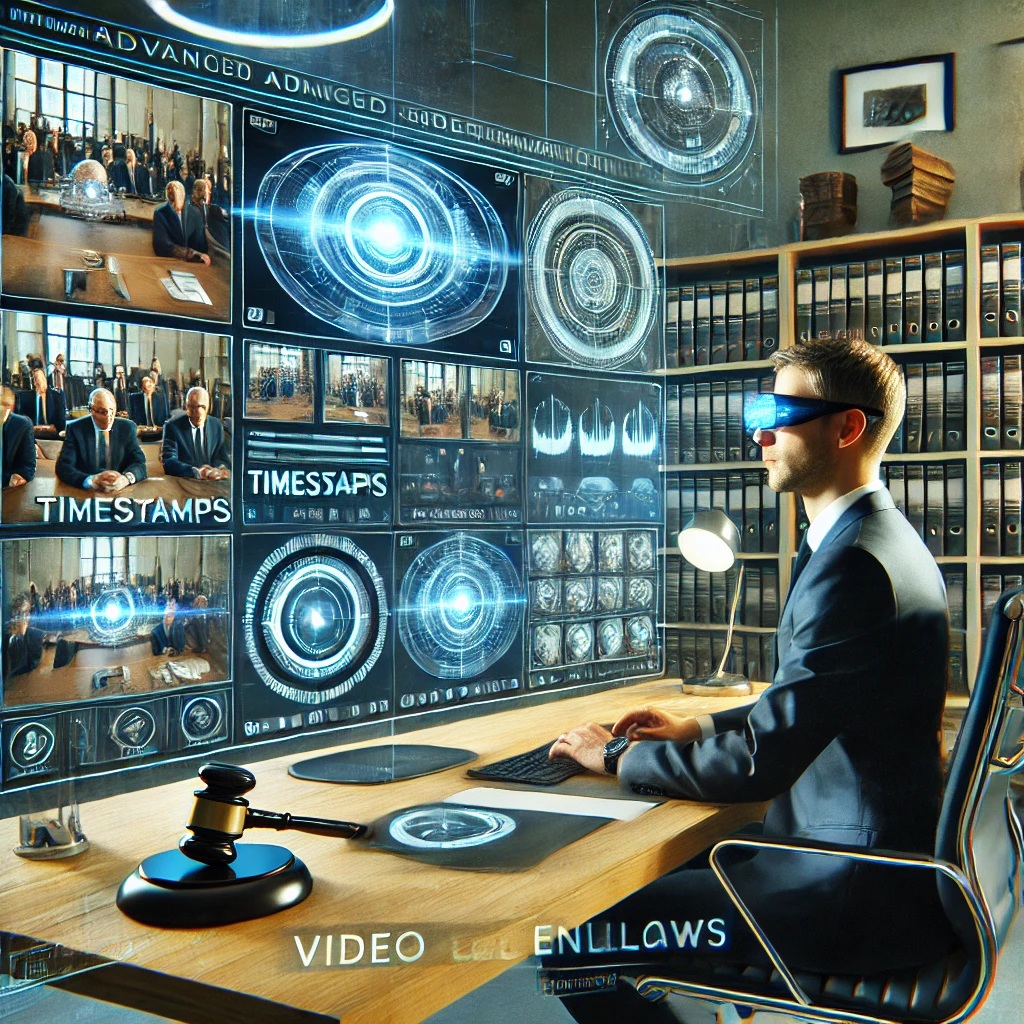In today’s technologically advanced world, the demand for precise, reliable, and efficient video analysis in legal and forensic contexts is greater than ever. Legal video enhancement tools and forensic video software have become essential resources for law enforcement agencies, attorneys, and forensic experts to uncover critical details from video evidence.
What Are Legal Video Enhancement Tools?
Legal video enhancement tools are specialized software solutions designed to process, enhance, and clarify video footage for legal and forensic applications. These tools work by improving video quality, stabilizing shaky footage, and amplifying details like faces, objects, or license plates. Such enhancements can play a crucial role in cases ranging from criminal investigations to civil disputes.
Key Features of Legal Video Enhancement Tools:
- Noise Reduction: Filters to minimize graininess or pixelation.
- Frame Stabilization: Corrects shaky or distorted footage for a clear view.
- Zoom and Focus Adjustments: Highlights critical areas in a frame.
- Light and Contrast Correction: Enhances visibility in poorly lit or overexposed videos.
These features collectively ensure that vital details, often hidden in low-quality footage, are brought into focus and can serve as credible evidence in court.
Understanding Forensic Video Software
Forensic video software takes video enhancement to the next level by integrating advanced analytical tools. This software is used to process video footage methodically and scientifically, ensuring the results are admissible in legal proceedings. Beyond enhancement, forensic video software offers features like video authentication, frame-by-frame analysis, and metadata extraction.
How Forensic Video Software Works:
- Video Analysis: Examines the integrity of video files to identify tampering.
- Time-Lapse Analysis: Tracks activity changes over a specific timeline.
- Image Comparisons: Matches visual elements in different frames.
- Metadata Retrieval: Extracts critical information, such as timestamps, location, and recording device data.
Forensic video software is indispensable for ensuring justice by confirming the authenticity of video evidence and uncovering hidden truths.
Why Are These Tools Crucial for Legal Cases?
Video evidence often serves as a cornerstone in legal proceedings, providing objective accounts of events. However, raw footage can sometimes be unreliable due to poor quality, environmental factors, or manipulation. Legal video enhancement tools and forensic video software address these issues by ensuring that the evidence is clear, accurate, and verifiable.
Common Applications in Legal Scenarios:
- Criminal Investigations: Identifying suspects, weapons, or vehicles.
- Civil Cases: Proving liability in accidents or disputes.
- Surveillance Footage: Clarifying events captured on security cameras.
- Courtroom Presentation: Providing clear, detailed visuals to support legal arguments.
Choosing the Right Tool: What to Consider
When selecting a legal video enhancement tool or forensic video software, consider the following:
- Ease of Use: Tools with user-friendly interfaces save time and effort.
- Advanced Features: Look for comprehensive capabilities like AI integration and multi-format support.
- Admissibility Standards: Ensure the software complies with legal standards for evidence presentation.
- Scalability: Opt for solutions that can handle various file formats and resolutions.
Conclusion
Legal video enhancement tools and forensic video software are transformative technologies in modern legal and forensic investigations. By enhancing video clarity and ensuring the authenticity of evidence, they empower legal professionals to uncover the truth and present compelling cases in court.
For those looking to explore cutting-edge tools in this field, visit Cognitech to discover innovative solutions tailored to your needs.
FAQs
Q1. Can legal video enhancement tools recover completely lost video footage?
A1. While these tools can enhance poor-quality footage significantly, they cannot recreate video data that was never recorded.
Q2. Is forensic video software admissible in court?
A2. Yes, as long as the software and its output comply with legal standards and chain of custody is maintained.
Q3. What types of files can legal video enhancement tools handle?
A3. Most tools support a wide range of video formats, including MP4, AVI, and proprietary formats used by CCTV systems.
Q4. Are these tools easy to use for non-experts?
A4. Many tools offer intuitive interfaces, but some advanced features may require training or expertise in video analysis.
Q5. How does forensic video software verify video authenticity?
A5. It uses metadata analysis, frame comparison, and other techniques to detect signs of tampering or manipulation.


